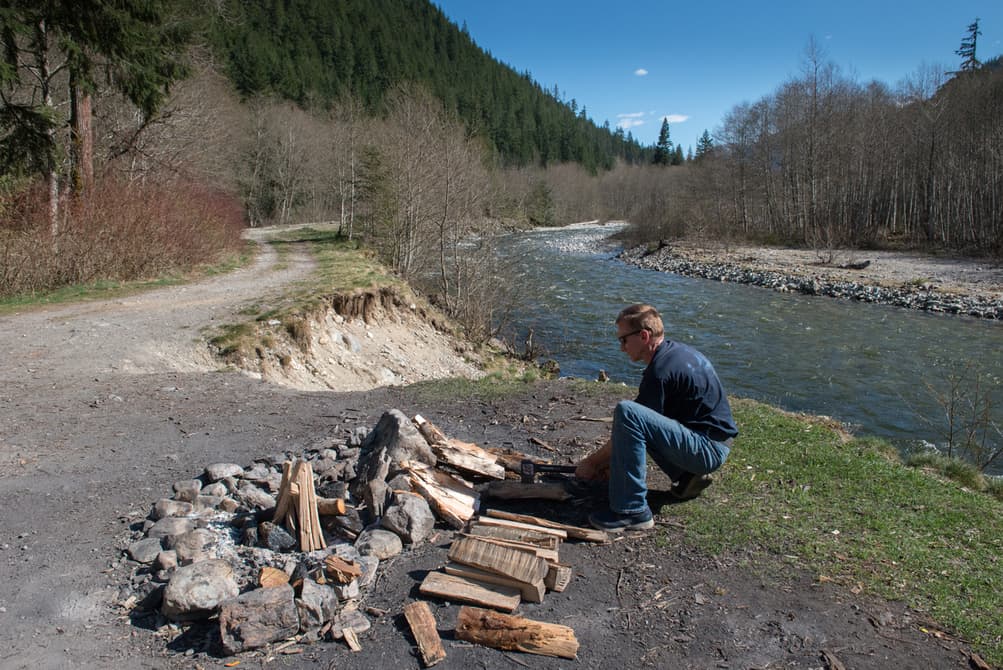Off-grid camping offers a unique opportunity to disconnect from the hustle and bustle of modern life and immerse yourself in nature. Whether you’re a seasoned outdoor enthusiast or a beginner looking to explore the wilderness, proper preparation and gear selection are crucial for a safe and enjoyable experience. This comprehensive guide will walk you through the essential gear, sustainable practices, and tips for a successful off-grid camping adventure.
Essential Off-Grid Camping Gear
Shelter and Sleep System
Your home away from home starts with a reliable shelter. Choose a tent appropriate for the conditions you’ll face. For group camping, consider 4-person tents that offer ample space. Don’t forget to pack a high-quality sleeping bag and sleeping pad for comfort and insulation. When choosing a sleeping bag, consider the temperature rating and your personal sleep preferences.
For the more adventurous, explore alternative shelters like hammocks or bivvies. You might even try cowboy camping for a truly immersive experience under the stars.
Power and Lighting
Off-grid camping doesn’t mean you have to be completely without power. Portable solar panels and power banks can keep your essential devices charged. For lighting, LED lanterns and headlamps are indispensable. Consider making a camping bucket light for an easy DIY solution. Hand-crank or solar-powered radios can provide entertainment and emergency information.
Water Management
Access to clean water is crucial when camping off-grid. Invest in a reliable water filtration system and learn how to purify water in the wild. Collapsible water containers are great for storing filtered water, and hydration packs are perfect for day trips. Knowing how to find water sources in the wild is an invaluable skill for extended trips.
Off-Grid Cooking Equipment
A portable camp stove and fuel are essential for preparing meals. Cast iron cookware is durable and great for campfire cooking. Don’t forget reusable utensils and dishes to minimize waste. For easy meal prep, learn how to use a camping can opener for those canned goods you’ve packed.
Navigation and Communication
Always carry physical maps and a compass, and know how to use them. GPS devices with offline capabilities can be helpful, but you shouldn’t rely solely on electronic devices. For emergencies, consider bringing a satellite communicator.
Sustainable Off-Grid Camping Practices
Leave No Trace Principles
Practice proper waste management and minimize your environmental impact. Pack out what you pack in and leave your campsite better than you found it. Familiarize yourself with campfire safety and etiquette to prevent wildfires and protect the environment.
Energy Conservation Techniques
Maximize natural light and use your power sources efficiently. Consider using solar-powered devices when possible to reduce reliance on batteries.
Water Conservation Strategies
Implement greywater management techniques and consider rainwater collection for longer stays. Every drop counts when you’re off the grid!
Off-Grid Camping Safety and Preparedness
First Aid and Emergency Supplies
Pack a comprehensive first aid kit and know how to use it. Include emergency shelter and fire-starting tools in case of unexpected situations.
Weather Preparedness
Understand the local climate and potential hazards of your camping area. Pack appropriate clothing for camping to stay comfortable in various conditions.
Wildlife Safety
Practice proper food storage techniques to avoid attracting wildlife. Know the difference between pepper spray and bear spray and how to use them safely. Familiarize yourself with wildlife encounters in national parks if you’re camping in these areas.
Planning Your Off-Grid Camping Trip
Choosing the Right Location
Research permitted camping areas and assess terrain and accessibility. For a truly remote experience, consider dispersed camping in national forests or BLM lands.
Trip Duration Considerations
Adjust your gear and supplies based on the length of your stay. Plan meals carefully and consider food preservation techniques for longer trips.
Skills Development
Develop basic wilderness survival skills and learn how to maintain and repair your equipment. These skills can be lifesavers in off-grid situations.
Advanced Off-Grid Camping Techniques
For extended stays or more ambitious off-grid adventures, consider:
- Long-term power solutions like portable wind turbines or fuel cell technology.
- Off-grid hygiene and sanitation systems, such as composting toilets.
- Foraging and self-sufficiency skills (always exercise caution and follow local regulations).
Conclusion
Off-grid camping offers a unique opportunity to connect with nature and test your self-reliance skills. By packing the right tent camping must-haves and summer camping essentials, practicing sustainable camping techniques, and preparing for various scenarios, you’ll be well-equipped for an unforgettable adventure.
Remember, the key to a successful off-grid camping trip lies in thorough preparation. Use this camping shopping list as a starting point, and don’t forget to check out our backpacking tips for beginners if you’re new to the world of outdoor adventures.
Now that you’re armed with knowledge and a comprehensive gear list, it’s time to plan your off-grid camping adventure. Embrace the wilderness, practice sustainable camping, and create memories that will last a lifetime. Happy camping!

Leave a Reply